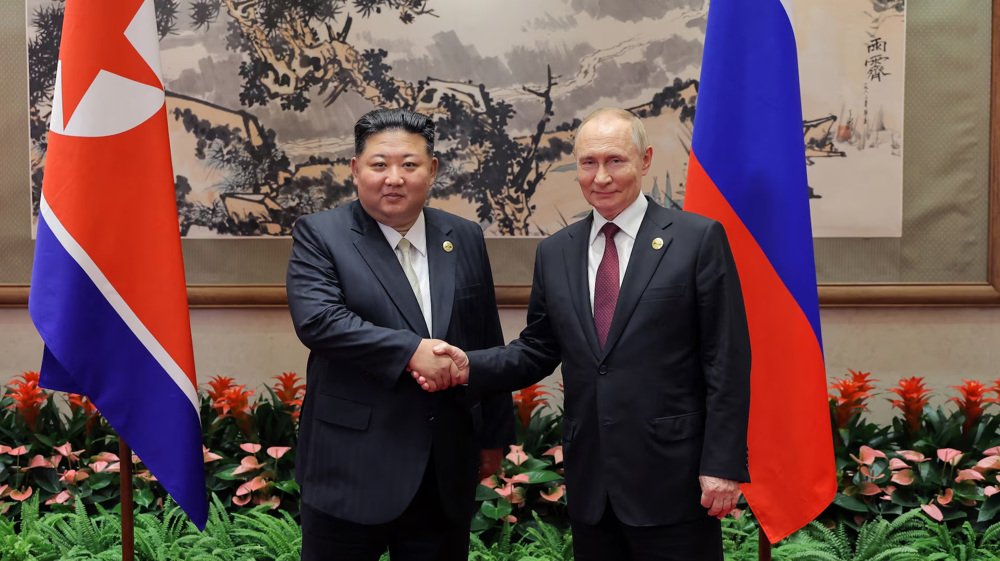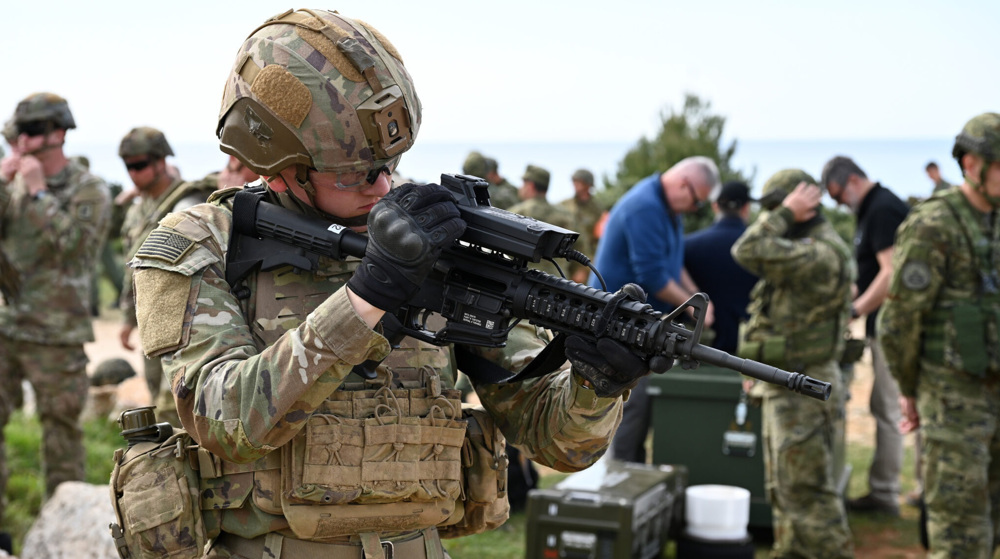EU extends Myanmar arms embargo over rights violations, prepares individual sanctions
The European Union has extended its arms embargo on Myanmar, preparing targeted measures against officials responsible for serious human rights violations.
During a session in Brussels on Thursday, the Council of the European Union extended its arms embargo on Myanmar for another year.
The embargo includes equipment that could be used for repression, the provision of military training and products used to monitor communications.
The EU arms embargo was in place until the end of April this year.
The council also agreed on a framework for personal sanctions against officials of the Myanmar Armed Forces and the border guard police. The Council said that these personal sanctions could include travel bans and asset freezes.
The 28-member bloc and several other countries have accused Myanmar of "serious and systemic" human rights violations during a military crackdown against persecuted Rohingya Muslims in Rakhine state.

Backed by Myanmar’s government and Buddhist majority, the military launched yet another heavy-handed crackdown against the Muslim minority in Rakhine state on August 25, 2017, using a number of armed attacks on military posts as the pretext.
Only in its first month, the clampdown, called by the UN and prominent rights group an “ethnic cleansing campaign,” killed some 6,700 Rohingya Muslims, including more than 700 children, according to Doctors Without Borders.
About 700,000 Rohingya Muslims have fled the predominantly-Buddhist Myanmar to neighboring Bangladesh since August last year.
On Wednesday, a senior official with the Myanmar government revealed that a UN Security Council delegation tasked with measuring the impact of the Rohingya refugee crisis was gearing up to tour Rakhine state.
The United Nations has described the military crackdown in Myanmar as “ethnic cleansing.”
A UN human rights envoy said last month that the “ethnic cleansing” of the Rohingya Muslim community was continuing in Myanmar, despite denials by the government in Naypyidaw of any violence against the minority group.
"The ethnic cleansing of Rohingya from Myanmar continues. I don't think we can draw any other conclusion from what I have seen and heard in Cox's Bazar," Andrew Gilmour, UN assistant secretary general for human rights, said in a statement on March 6 after speaking to newly-arrived Rohingya in Bangladesh's refugee camps on his four-day visit to Cox's Bazar district.
"It appears that widespread and systematic violence against the Rohingya persists," the statement said.
The Rohingya, one of the most persecuted communities in the world, are denied citizenship by Myanmar and face widespread discrimination from the country’s authorities.
Somalia officially demands Israel reverse recognition of Somaliland
Hezbollah condemns deadly terror attack on worshippers in Syria’s Homs
VIDEO | US military build-up in Caribbean
Iran parliament probes missing $6.7bn in oil export revenues: MP
Saudi-backed coalition vows to counter UAE allies in Yemen
VIDEO | Heavy rains, flash floods leave Southern California homes caked in mud
‘He chose to save lives’: Netizens rally for Gaza doctor’s release after a year in Israeli jail
US uses Iraqi airspace to spy on Iran, says Iranian ambassador to Baghdad












 This makes it easy to access the Press TV website
This makes it easy to access the Press TV website